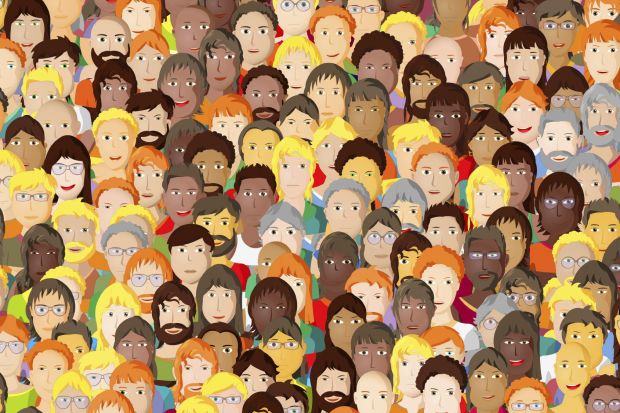As citizens and educators of a world beset by increasing divisiveness that threatens the integrity of our cultures, political systems and peace, we must consider whether undergraduate education can help bring forth an era of greater global consciousness and more active cooperative intent.
I believe that higher education not only can, but is likely the only social institution capable of accomplishing this task on the scale required.
We expect undergraduate education to offer students the analytic, communicative, and creative skills fundamental to successful careers and satisfying lives. We admire ambitious institutions that seek to place higher education more directly at the service of a more responsible world by inviting students to develop their own sets of social and ethical values and by making deeper commitments to gender equality, inclusion of minorities, and environmental stewardship.
But to equip graduates to address with wisdom and resolve the global challenges facing this century, undergraduate education must do more. It must empower students to think in complex and global terms as they grapple with the challenges that threaten the sustainability of life as we know it. It must produce graduates who understand the consequences of severe global economic inequality, not only as the current source of irrepressible migration but as a generator of global conflict over the longer term. It must produce graduates who will take seriously the consequences of the current rate of climate change, and graduates who will take responsibility to build a world of greater equality, respect, and opportunity.
And even more fundamentally, to create the context for addressing these challenges and sustaining peace, higher education must deliberately nurture in its graduates the intellectual capacities, interpersonal skills, and vision required to create a cooperative global consciousness.
Fortunately, we have evidence that education can accomplish this task. In 2007, New York University and the government of Abu Dhabi jointly established NYU Abu Dhabi, a global research university with a liberal arts college at its heart. Its research would combine an emphasis on rigorous intellectual advance with intentional application of its results to a range of the most pressing challenges that face our globe. Its undergraduate programme would combine a robust liberal arts education with nurturing the interpersonal skills and the vision required for leadership in a cooperative century.
A decade later, its student community of approximately 1,350 is drawn from among the best students of more than 120 nations. It is a community in which no single culture dominates and thus one in which each student tests and shapes his or her assumptions, values, and priorities against those of literally a cross-section of humanity. It is a community that dismantles stereotypes and deepens appreciation of differences. Most significantly, it is a community that recognises the shared human need for security, appreciation and enjoyment of beauty and humour, and longing for opportunity and meaning – a community in which building bridges of shared understanding and responsibility is not merely aspirational, but natural, even across differences that at first seem unbridgeable.
Despite many characterisations to the contrary, it is a community in which a guaranteed freedom of intellectual expression and argument critically promotes the development of deeper understanding and richer creative achievement. Opportunities for study, research, and internships across NYU’s global network vividly capture the interconnectedness of that globe and the need for cooperation across it.
Students’ and faculty’s experimental, scholarly and artistic productivity has been truly extraordinary for an institution of NYUAD’s size and age and has contributed to the the UAE’s development as a global centre of research and creative activity.
There are few experiences more profoundly moving than hearing graduates speak of the impact of an NYUAD education. In addition to describing its academic power and the quality of preparation it offers both for their careers and for responsible global citizenship, these accounts attest to how that education has awakened students’ recognition of human commonality and increased their confidence in building the foundations of a more cooperative world.
Nurturing that recognition must become part of what all leading institutions of higher learning aim to do.
Students know that this kind of learning will be essential to their careers and feel pride in an institution that takes this historic educational step. As higher education broadens its own mission and expands the community of a shared global vision, it will vitally increase its own value to this century.
Furthermore, every institution of higher education, no matter its specialisation, location or size, has the very real potential to contribute to this urgent transformative initiative.
Each must develop in its students more complex understanding of the global challenges that we face and clearer recognition of the human common ground upon which we can develop cooperative efforts directed at peaceful goals.
The time to implement these strategies is now. Neither higher education nor the world can afford to wait!
Alfred Bloom is vice-chancellor at New York University Abu Dhabi.
Register to continue
Why register?
- Registration is free and only takes a moment
- Once registered, you can read 3 articles a month
- Sign up for our newsletter
Subscribe
Or subscribe for unlimited access to:
- Unlimited access to news, views, insights & reviews
- Digital editions
- Digital access to THE’s university and college rankings analysis
Already registered or a current subscriber? Login




